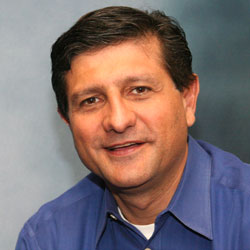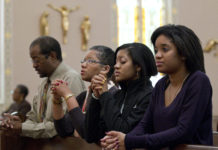Ten years ago, my neighbor was wandering around in a daze in the middle of the day. When I asked what was wrong, she said she had just been released from observation at the Arizona State Hospital — the state’s official psychiatric institution.

I was shocked for a moment and didn’t know how to react. For all the thousands of people I have interviewed, from the famous to the felonious, an encounter with those suffering mental challenges was and still is a challenge for me.
Thankfully, God inspired me to swallow my fear and confusion and engage her, asking simply, “How are you?”
Of course the answer wasn’t good, and she unloaded everything happening in her life. The issues were complicated as they usually are with all human beings. From substance abuse to family troubles to financial woes, much had conspired to essentially break her spirit. And her mind eventually just said enough was enough.
Now even though I write and speak on how to overcome tough times, I am certainly not qualified to give actual mental health advice. And for a moment, I thought this was the perfect “out.” But I stopped short of stepping out of the picture because I felt incredibly compelled by the fact that she was my neighbor, by the fact that I constantly preach the importance of helping those who come our way and finally by some inculcated Catholic compulsion to help.
So I reached out in the way I knew how — be simply being human — and letting her know I considered her and her problem to be human too. I swallowed my fears, my discomfort and tried to identify with her through times in my own life when I felt like the walls were closing in, like the there was no light in the darkness, and about the light that I had found — namely my faith, my family and my friends.
Then I told her that I truly would help in whatever way I could. For me that involved emailing her some helpful info on support groups, getting her in touch with a local church and telling her she could feel free to talk anytime.
Ten years later I am happy to report that she is not only out of the woods, but she has a wonderful and fulfilling life, part of which is a deep spiritual connection to God and church, which she says was in no small part because I, as a representative of Christianity, was so loving and caring.
Lessons learned
The lesson for me was twofold. That as a Catholic, every time I do or don’t reach out and help I am not only representing myself, but my faith and my God.
Secondly, the most important thing we can do to help those with mental challenges is to allow them to feel welcome and that they are part of the community, so as to not isolate and estrange them even further.
That’s an extraordinarily important issue now more than ever in America as we have faced a significant number of bizarre and violent acts by young people in recent years. Yet somehow the issue of mental health barely gets mentioned.
The reason is probably the same as why I was tempted not to say anything to my neighbor. We don’t know what to say, what to do, or if we are qualified to help. We are fearful and uncomfortable.
With more than 23,000 people suffering from mental health problems in Maricopa County, and Arizona being in the top 10 for suicide rates, at some point we need to stop trying to avoid or ignore mental health issues. We must embrace and love those who face them in the way Christ most certainly would.
I can’t think of a better space to talk about that than in a Catholic newspaper, or a better support group to reach out to than the Catholic community. Thanks for listening.




![[VIDEO] Make Sunday feel like Sunday again](https://www.catholicsun.org/wp-content/uploads/2021/04/2021-YOUTUBE-BISHOP-MESSAGE-THUMBNAIL-ENGLISH-218x150.png)

